Arrival at Livingstone Airport (Zambia) or Victoria Falls Airport (Zimbabwe). Transfer to your hotel, check in and spend the rest of day at leisure.
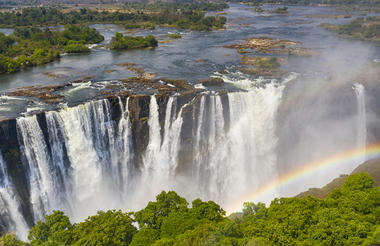
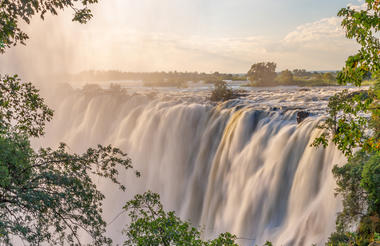
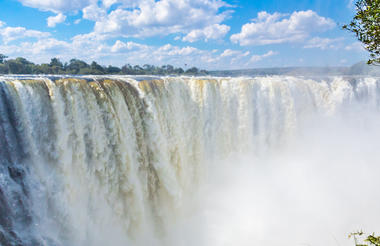
Baggage (max 20 kg) must be packed in soft bags. No hard bags or bags with frames or wheels are accepted on light aircraft charter.
The lodges are closed from 01. February 2017 – 01. March 2017
A morning tour of Victoria Falls: The Victoria Falls are a truly awe-inspiring experience – the sight, the sound, the smell; the humbling feeling that here indeed is nature’s supreme masterpiece. No photograph can begin to depict the reality…and nothing prepares you for your first sight. Guests will be accompanied through the Rainforest by a local guide who will give a brief history of the Falls themselves as well as detailing the flora, fauna, bird and wildlife and other points of interest. In the late afternoon you will be for a sunset cruise on the Ra-Ikane boat on the Zambezi River. (Park entrance fees and river fees included).
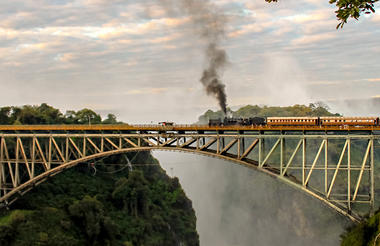
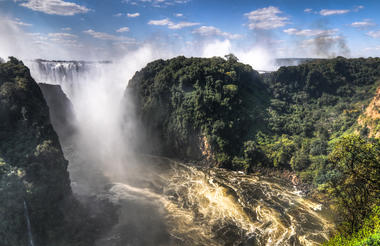
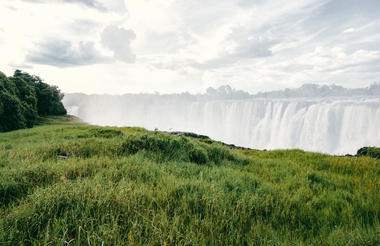
A day at leisure at Victoria Falls. Many optional tours and activities on offer:
•Helicopter flips over the Falls
•White water rafting
•Bungi jumping
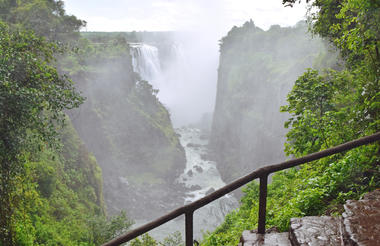
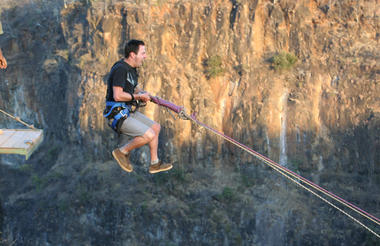
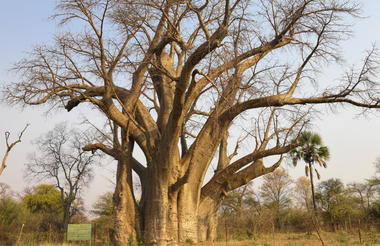
You will be collected at your hotel and transferred to your lodge in Botswana, ready to explore Chobe National Park. In the afternoon, enjoy your first wildlife activity. The Chobe National Park, which is the second largest national park in Botswana and covers 10.565 square km, has one of the greatest concentrations of game found on the African continent. Its uniqueness in the abundance of wildlife and the true African nature of the region, offers a safari experience of a lifetime.



Your wildlife safari in Chobe continues, both on land and also by boat on the Chobe River. A major feature of Chobe National Park is its elephant population currently estimated at around 120,000. The Chobe elephant are migratory, making seasonal movements of up to 200 km from the Chobe and Linyanti rivers, where they concentrate in the dry season, to the pans in the southeast of the park, to which they disperse in the rains.
You will be transferred to Kasane airport, where you will meet our representative who will introduce you to your pilot and show you to your light aircraft for your first flight. Your first destination is Savuti. Stretching from the waterways of the Linyanti all the way to Savuti Marsh, the winding waterways of Savuti Channel have pumped life into the western section of Chobe National Park for thousands of generations. But this fickle and unpredictable channel has a fascinating history of flooding and drying up independently of good rainy seasons and flood levels elsewhere - a mystery that has intrigued geologists and other researchers for many years.
When David Livingstone discovered the Savuti Channel in 1851 it was flowing. 30 years later the channel had disappeared and the Savuti Marsh had dried out, remaining this way for almost 80 years. It flowed again in the late 1950s, continuing until the early 1980s when it again receded, giving the channel its reputation as ‘the river which flows in both directions’. In 2009, after another extended pause, the channel began flowing again and by January 2010 had spilled into the Savuti Marsh for the first time in 3 decades.
No-one knows how long the water will remain…
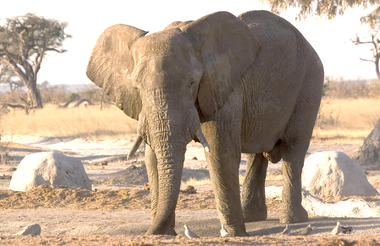
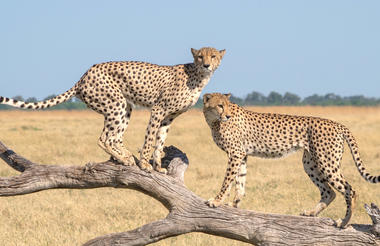
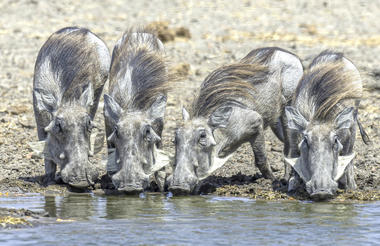
The area is renowned for its population of bull elephant and for the unique interaction of the resident predator species. Open 4x4 game drives are conducted in the Savuti area, including the famous Savuti Marsh, and the ancient San rock paintings at Gubatsa Hills, add magic to a delightful African safari. Savuti lays claim to the second biggest summer zebra migration in Africa, which is determined by the rains but usually occurs between November and December and again between February and April when the zebras move from the rivers in the north in search of the rain-ripe grasslands and full waterholes in the southeast of the park. Often followed by a myriad of predators, the zebra migration is a must for visitors.



On your morning of departure after a game activity and breakfast – you will be transferred to the airstrip to continue on your journey by light aircraft to Botswana’s magnificent Okavango Delta, the world’s largest inland delta. This area is a maze of deep lagoons, large lakes and hidden, meandering channels. During the annual flood season the Delta covers a vast area of over 16,000 km² before shrinking to less than 9,000 km² in the dry season. Trapped in a basin of parched Kalahari Desert sand, the fresh water oasis attracts wildlife that depends on the permanent waters of this unique environment. Your camp is an enchanting, cosy and authentic African safari lodge situated on the remote Nxaragha Island at the heart of the permanent Okavango Delta. To ensure a peaceful and genuine safari experience, the camp accommodates just 24 guests in intimate East African-style safari tents. Each tent is individually situated on a raised teak platform, features en-suite facilities and enjoys sliding glass doors which open on to a private open air viewing deck. Other facilities include a secluded bird-viewing hide and sundeck with plunge pool. In the afternoon you will have your first wildlife experience at the camp.



Water-based game-viewing activities are conducted by experienced professional guides who will expertly navigate guests through the many meandering, reed-lined waterways. Roam the vast expanses of water from the comfort of a modern motorboat or explore the intricacies of the Okavango Delta the old fashioned way, in the traditional contours of the Mokoro (canoe). For those looking to get a little closer to nature, guided bush walks are conducted on a number of the nearby islands, offering an opportunity to track some of the larger land-based species that inhabit this water wilderness. Bird-watching opportunities are outstanding, as well as fishing for bream and tiger fish.
-02-09.52.53.jpg)


After a morning activity and a leisurely breakfast on your last day, you board a light aircraft for your transfer to Maun where the tour ends.

